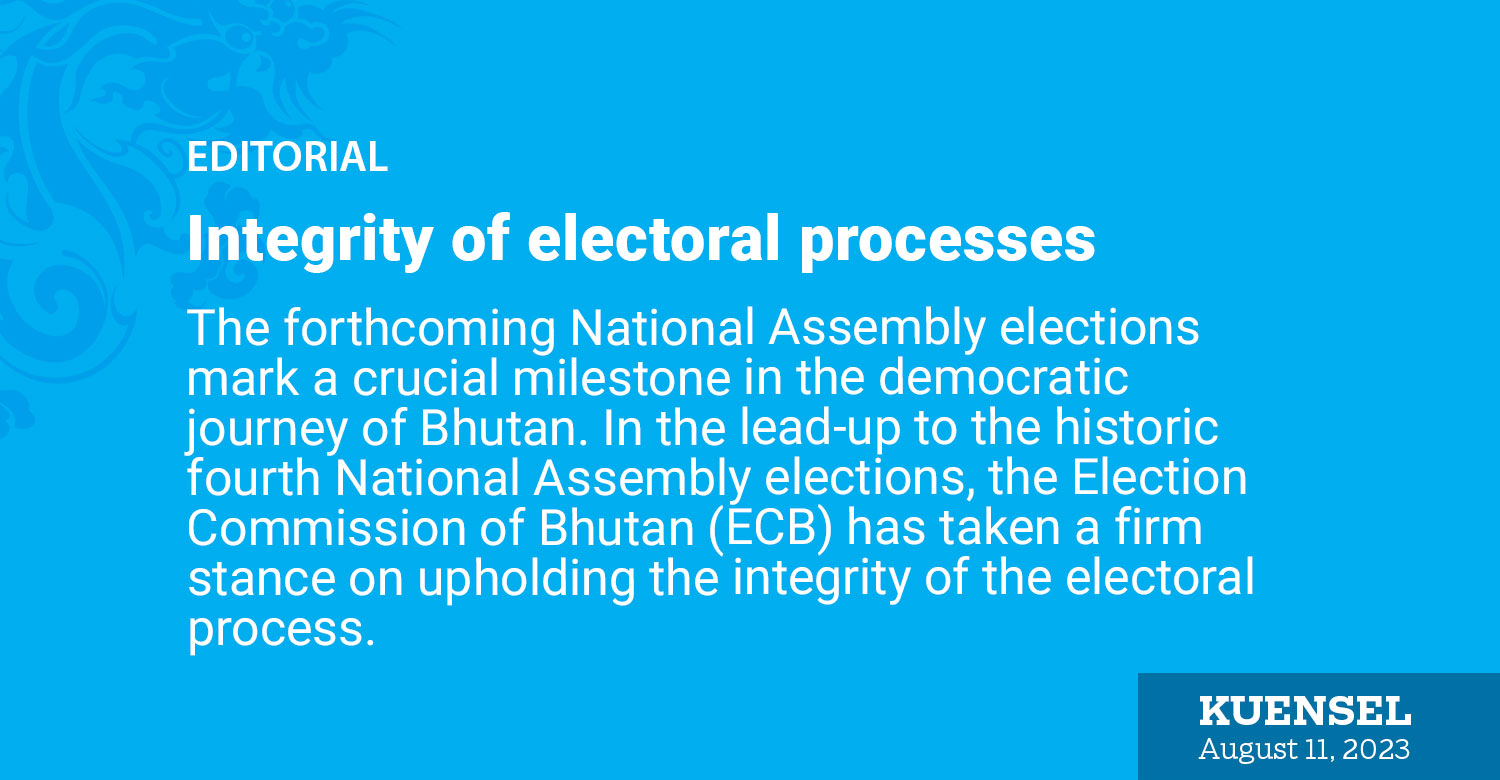The forthcoming National Assembly elections mark a crucial milestone in the democratic journey of Bhutan. In the lead-up to the historic fourth National Assembly elections, the Election Commission of Bhutan (ECB) has taken a firm stance on upholding the integrity of the electoral process.
In a recent communication addressed to the presidents of all political parties, the Chief Election Commissioner emphasised the imperative of strict compliance with electoral laws and cautioned against premature political campaigning during familiarisation visits.
The role of political parties in the democratic process is crucial, as they represent the diverse voices and aspirations of the citizens. However, it is equally imperative that this representation adheres to the framework of rules and regulations that safeguard the sanctity of the elections. The ECB’s reminder comes in light of reports emerging on various social media platforms and at public gatherings that some political parties have been engaging in campaign activities during their familiarisation visits and consultation meetings.
It is important to recognise the distinction between engaging with the public and indulging in active campaigning. The familiarisation visits and public consultation meetings allowed by the ECB are valuable opportunities for political parties to connect with the constituents, understand their concerns, and lay the groundwork for a well-informed electoral campaign. However, these engagements should strictly avoid any form of political campaigning, as explicitly stipulated in the election laws. Such early campaigning not only creates an uneven playing field but also undermines the essence of fair elections.
The commission’s communication also addressed concerns about candidates travelling across constituencies during these visits. To maintain transparency and equity, the ECB has already communicated that such travel requires prior approval, and it is limited to candidates stationed in their respective constituencies accompanying their party’s president and vice president. This measure aims to prevent any undue advantage being gained through pre-election promotions outside of the designated campaign period.
The ECB’s assertion that any violation of these regulations will lead to stern actions, including fines and disqualification of the political party or candidate from contesting elections, underscores the commission’s dedication to maintaining a level-playing field. A lesson from our past elections is that parties need to keep their workers and supporters in check.
In this regard, the ECB needs to further ramp up its efforts to educate citizens about electoral processes and procedures. However, the success of these efforts hinges on the adherence of political parties to the rules that govern their conduct.
The ECB, as the guardian of our democratic process, has to mete out severe punishment to those who violate the ground rules to maintain the sanctity of the electoral process and underscore the significance of conducting free, fair, and transparent elections. However, the problem currently is that the commission is dropped with only hints and no solid proof to work on.
Each of us has the moral obligation to shoulder the responsibility to ensure the integrity of the electoral processes from a farmer to civil servants, candidates to election officials, and above all the party leaders. His Majesty the King has said, “I will not be corrupted and I will not tolerate corruption in others.” Such a critical period in our history as this calls for us as His loyal and country-loving subjects to uphold and honour that command more than ever before.


